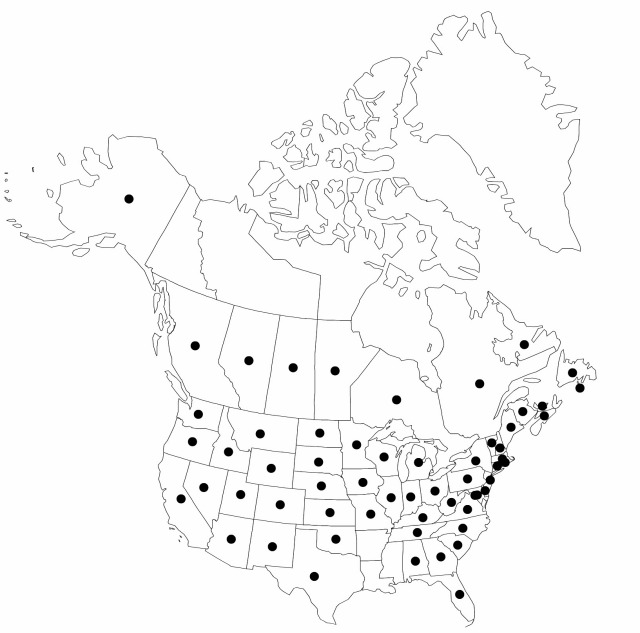Carex stipata
Sp. Pl. 4(1): 233. 1805.
Plants with basal sheaths of previous year not persistent. Culms easily compressed, to 120 cm × 7 mm, scabrous. Leaves: sheaths usually all with blades, green; fronts rugose, indistinctly linearly veined, apex colorless, fragile, convex, not forming extension, erose; ligules acute, 10 mm, free limb to 0.8 mm; blades not epistomic, to 100 cm × 15 mm. Inflorescences densely spicate, elongate, cylindric, with 15–25 distinguishable branches, 5–15 × 4 cm; proximal internode to 10 mm. Scales hyaline. Perigynia pale brown with red-brown veins, 15-veined abaxially, 7-veined adaxially, to 6 × 2 mm, base distended proximally, cordate; stipe to 0.4 mm; beak to 3.5 mm, serrulate. Achenes ovate, to 2 × 1.5 mm; stalk to 0.3 mm; persistent style base cylindric.
Distribution

North America, e Asia.
Discussion
Varieties 2 (2 in the flora).
Selected References
None.
Lower Taxa
Key
| 1 | Leaves not more 10 mm wide; inflorescences to 10 cm; perigynia 4–5 mm; beak to 2.5 mm. | Carex stipata var. stipata |
| 1 | Leaves 8–15 mm wide; inflorescences 10+ cm; larger perigynia 5–6 mm; beak at least 3 mm. | Carex stipata var. maxima |